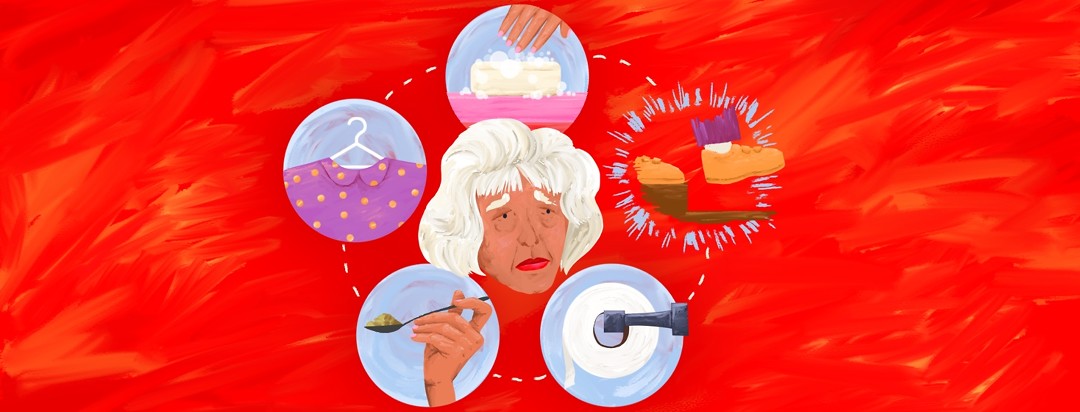Mom's Experience with Occupational Therapy
One definition of Occupational Therapy is a form of Therapy for those recuperating from physical or mental illness that encourages rehabilitation through performing activities required in daily living.
Occupational Therapy (OT) can be very beneficial for the majority of people and in most situations. This form of Therapy can be helpful for our loved ones with Alzheimer's to maintain their independence as long as possible.
What are the 5 basic activities of daily living?
There are 5 basic categories of the activities of daily living that an individual needs to be able to do on a daily basis to live independently.1
- Personal hygiene - bathing and showering, personal grooming, nail care, and oral care.
- Dressing - the ability to make appropriate clothing decisions (dressing for the weather with clean clothes) and physically dress and undress oneself.
- Eating - the ability to feed oneself, though not necessarily being capable of preparing the food.
- Maintaining continence - both the mental and physical capacity to use the restroom, including the ability to get on and off the toilet and clean oneself.
- Transferring and Mobility - moving oneself from seated to standing, getting in and out of bed, and the ability to walk independently from one location to another.
OT can help our loved ones maintain independence
Especially in the beginning stages of Alzheimer's , OT can help our loved ones continue to perform these necessary daily activities by themselves and give them more confidence. My mother felt better having a plan in place to help her maintain her independence after her doctor recommended she have OT.
She was taught activities to work on and exercises to repeat to keep her moving. Mom could do these activities with her therapist and by herself in the safety of her home. I would often do the activities with my Mom to keep her motivated. Through hard work by Mom, she could keep most of her independence for a number of years, thankfully.
Complications that come with disease progression
But unfortunately, any form of OT can become complicated and pose a significant challenge to our loved ones that have progressed to the middle and later stages of their Alzheimer's journey. Middle and later-stage Alzheimer's patients will sadly never fully "recuperate" from their suffering. They are already in the process of forgetting how to perform the activities required in daily living, so OT can become confusing and hard to do because of their diminishing mental capacity.
When Mom fell and broke her ankle
A number of years ago, when my Mom was in the middle stages of her Alzheimer's journey, she was walking in her kitchen and heading into the family room to watch a favorite television program with my dad. There is one step down to the family room from the kitchen. Mom had taken that step down since they moved into this house years ago. Unfortunately, that night Mom missed the step. She fell, broke her ankle, and was in a lot of pain.
She ended up in the hospital because of her injury and an undiagnosed urinary tract infection. Mom spent about a week in the hospital. She spent that entire week in the hospital bed or a wheelchair. Mom was then transferred to a nursing home near our house to recover. In the nursing home, Mom again began Occupational Therapy to help her regain her mobility. The therapist would work with Mom almost daily, but it was difficult for her to follow along and do what she needed.
Rallying around Mom to support her
After weeks and weeks of daily occupational Therapy, hard work, and struggle, Mom was still unable to move from her wheelchair to a standing position without our help. Walking even with a walker had become impossible for her.
Sadly, we knew then that Mom had to start using a wheelchair. Our family rallied around Mom to help her adjust to this "new normal" on her Alzheimer's journey.

Join the conversation